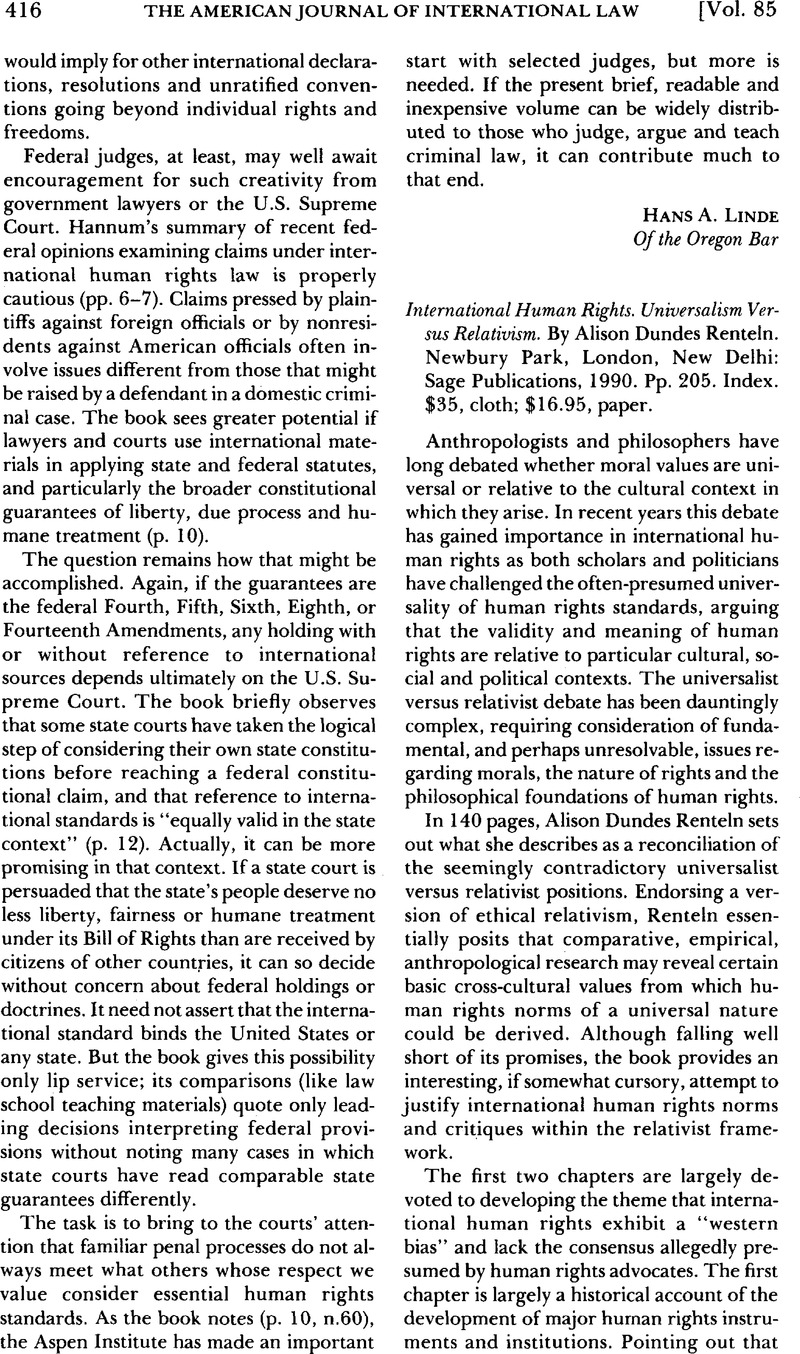No CrossRef data available.
Published online by Cambridge University Press: 27 February 2017

1 Throughout the book Renteln suggests that the words, deeds and values of national representatives or “elites” of “third world” nations may not, for purposes of human rights, accurately represent the values of their national constituencies. See, e.g., pp. 38, 54, 89 and 92. Whether this assertion is true or not, Renteln fails to provide any empirical support whatsoever for her supposition or explain why this alleged discrepancy is not equally true for western industrialized countries (whose representatives are similarly composed of social “elites”). Nor does Renteln explain who might be sufficiently populist to reflect “people’s” values “accurately.”
2 Quoting Schmidt, Some Criticisms of Cultural Relativism, 70 J. Phil. 780, 782 (1955).
3 Enculturation is the process by which people unconsciously acquire the moral values of their own culture and accept them as universal truths.
4 See, e.g., R. Howard, Human Rights in Commonwealth Africa 16–29 (1987).